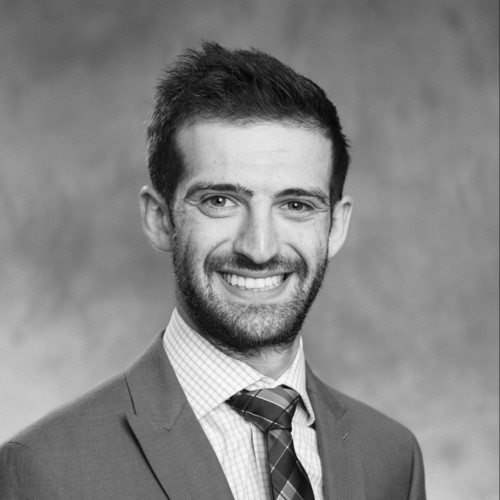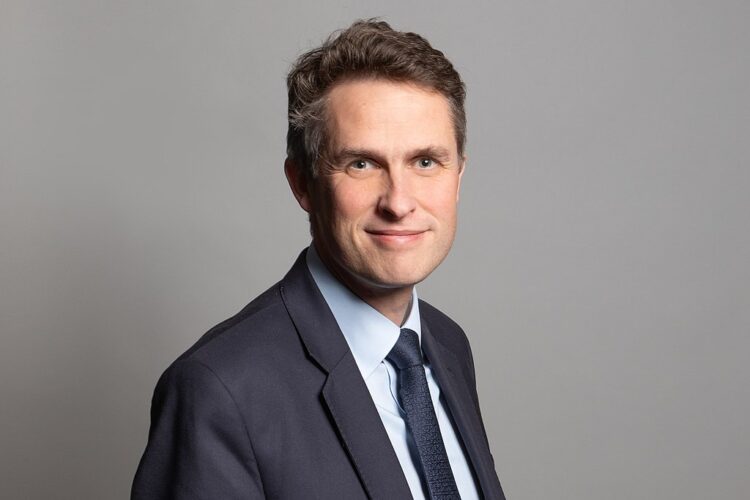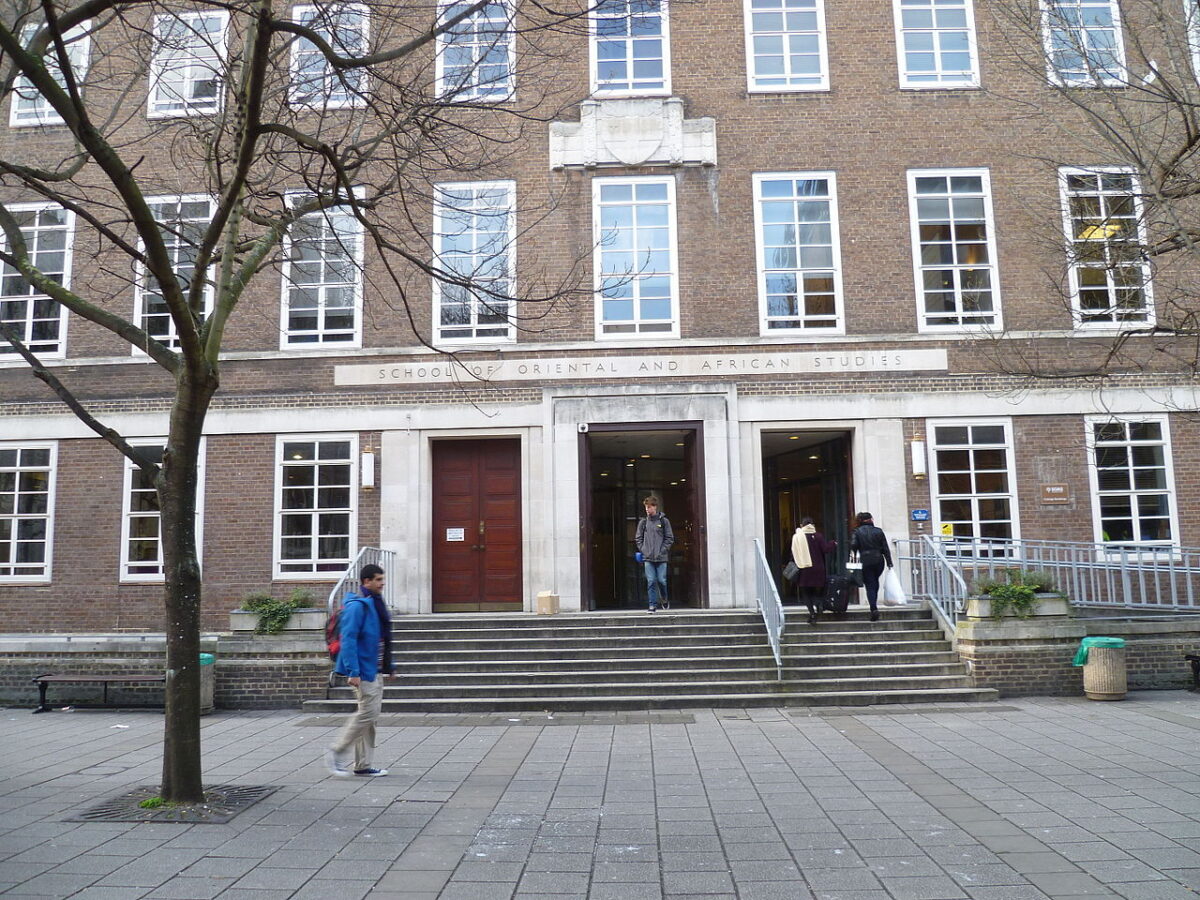As a graduate of the University of London’s School of Oriental and African Studies, I was distressed to learn that one of its students dropped out of a postgraduate program due to what he claimed was a “toxic antisemitic environment” on campus.
I studied at SOAS, a world-renowned institution, from 1969 to 1970, completing an MA degree in Middle Eastern Studies. When I arrived in London on a late summer day in early September, only two years had elapsed since Israel’s astounding victory in the Six Day War.
Much to my fortune, two of my teachers were respected scholars. Abbas Kelidar, a mild-mannered person, was an expert on Iraq and P. J. Vatikiotis, a sarcastic man, was an authority on Egypt. Their lectures were models of astute and balanced scholarship.

My classmates were a diverse bunch: Britons, Americans and Lebanese Armenians. I was the sole Canadian and, I believe, the only Jewish student in the class.
Although most of my fellow students were pro-Palestinian in outlook, they were not noxiously anti-Israel and certainly not antisemitic, as far as I could tell. They were receptive to debating the contentious Arab-Israeli dispute in a civilized manner. I never felt shunned, excluded or isolated.
Fifty years have passed since my graduation from SOAS, and a lot of water has flowed under the bridge, as they say. There have been several wars, two civil wars and coups in the Middle East. Arab and Israeli leaders have come and gone: Anwar Sadat and Yitzhak were assassinated and Saddam Hussein was executed on the hangman’s noose. Israel has signed peace or normalization treaties with six Arab countries ranging from Jordan to Sudan. Israel’s conflict with the Palestinians has deepened as Israel has tightened its occupation of the West Bank through a network of settlements, roads and military bases.
Israel, the darling of conservatives once viewed positively in liberal circles, is now the object of scurrilous attacks by left-wingers and antisemites. The Boycott, Divestment and Sanctions movement, which seeks Israel’s transformation into a binational or secular state and the admission of Palestinian refugees into Israel, is gaining ground on university campuses, particularly in Canada, the United States and Europe.
As a result of these developments, universities have become bastions of pro-Palestinian opinion. Jewish students who have a strong affinity with Israel may feel uncomfortable, left out and even scorned. It’s debatable, of course, whether their discomfort is caused solely by anti-Zionism, which can be a variant of antisemitism, or by classical anti-Jewish animosity.
Noah Lewis, a Torontonian, ran into this problem during the 2018-2019 academic year at SOAS.

Now pursuing a dual Canadian-American law degree at the University of Windsor and the University of Detroit, he told The Jewish News of London, “During my experience at SOAS, I quickly learnt that students who diverge from what are deemed as the ‘mainstream’ views are ostracized and labelled accordingly.”
Although he expected to be confronted with “differing views from my own,” he was surprised “to be subjected to such a toxic antisemitic environment, especially from a school that has the reputation of placing diversity first and foremost.”
According to Lewis, students regarded as pro-Israel were labelled “Zionists,” and antisemitic graffiti and symbols were daubed on lockers, desks and toilet walls. There was support for the BDS movement.
When he asked classmates for their opinion on a dissertation he intended to write on United Nations bias against Israel, they accused him of whitewashing Israeli war crimes and denounced him as a “white supremacist Nazi.” Being a grandson of Holocaust survivors, he was offended by this characterization. He withdrew from SOAS, went back to Canada, and demanded a refund of his tuition fees.
In May 2019, the UK Lawyers For Israel Charitable Trust and the Lawfare Project filed a complaint against SOAS on his behalf.
A panel investigating his allegations offered him an apology for emotional trauma “experienced due to the perceived antisemitic discrimination which he had to endure,” plus a symbolic compensation payment.
Lewis appealed and a new panel ruled that the first investigation had “not been adequate.”
Two days ago, the UK Lawyers For Israel Charitable Trust disclosed that a settlement had been reached, with SOAS having agreed to give him a refund of $20,400.
In a statement, the university said: “SOAS is extremely concerned about any allegation of antisemitism in our school. We cannot comment on any individual student or the outcomes of any appeal. However, where we have established an independent panel as part of a compliance process, we would … consider the findings of such a panel thoroughly and take appropriate action.”
As for Lewis, he said, “The antisemitic climate that has taken hold on (British) campuses like SOAS cannot be allowed to persist, and I strongly urge fellow students who have suffered similar experiences to speak out. This is the only way we will affect positive change.”
SOAS cannot afford to be complacent about this real and disturbing phenomenon.
It can begin to make amends by adopting a zero tolerance policy toward inappropriate and insulting student behavior. SOAS, as well, can adopt the International Holocaust Remembrance Alliance definition of antisemitism, which includes holding Jews collectively accountable for Israel’s policies and equating Israel with Nazi Germany.
Britain’s education minister, Gavin Williamson, is ahead of the curve concerning this matter, having ordered universities to adopt this definition or face a cutoff of government subsidies.

As he said recently, “The repugnant belief that antisemitism is somehow a less serious or more acceptable form of racism has taken insidious hold in some parts of British society. I am quite clear that universities must play their part in rooting out this attitude and demonstrating that antisemitism is abhorrent.”
The Union of Jewish Students found that only 29 of 133 British universities have adopted the International Holocaust Remembrance Alliance’s definition of antisemitism, while 80 have no current plans to do so.
Universities have objected to it on the grounds of academic autonomy and freedom of speech requirements. But if they do not change their policy, it’s quite conceivable that more universities in Britain will have to grapple with cases of the kind that have roiled the School of Oriental and African Studies.
